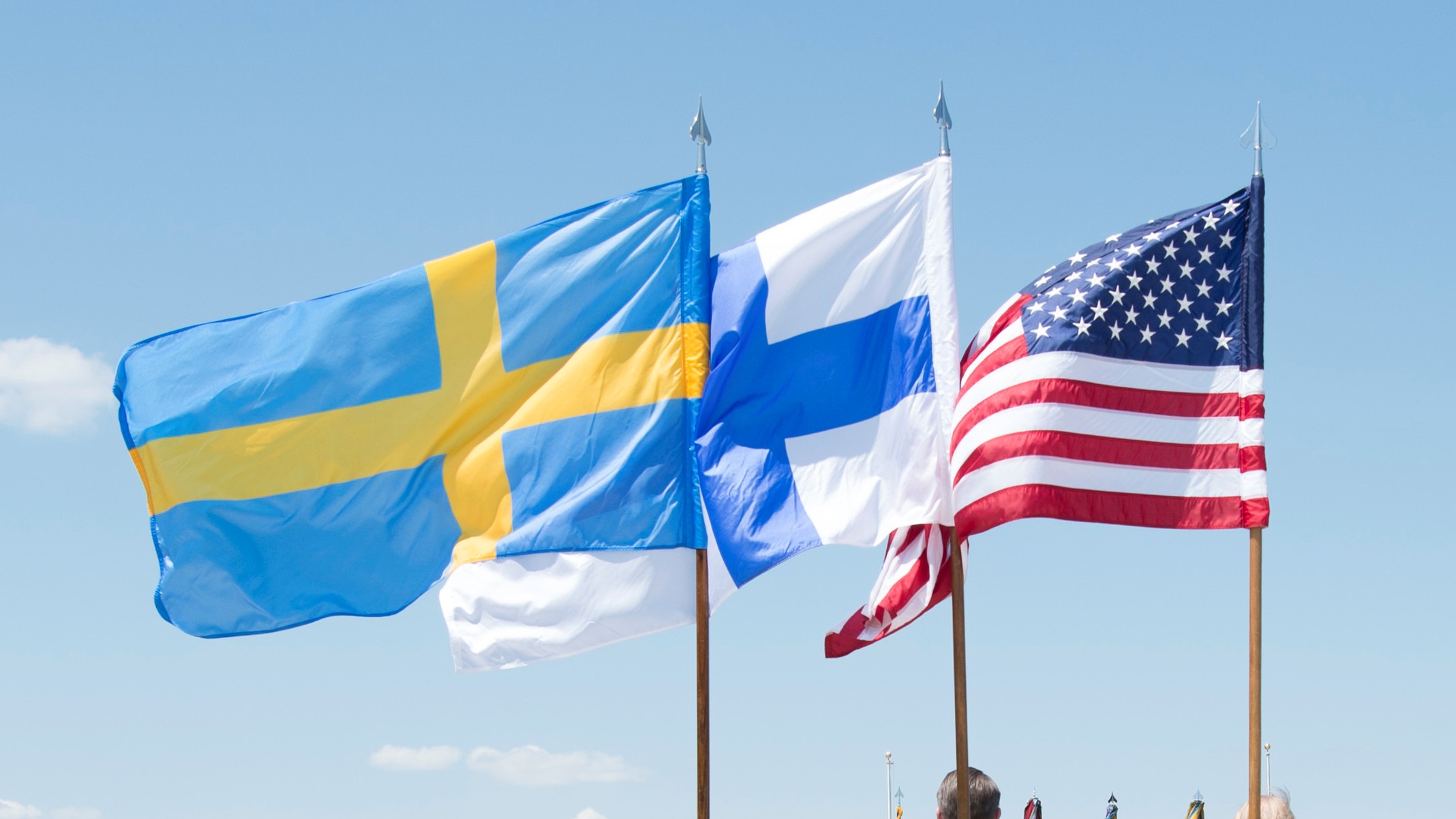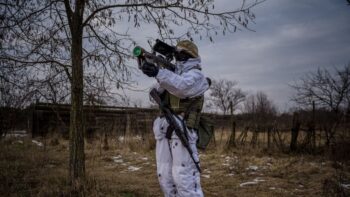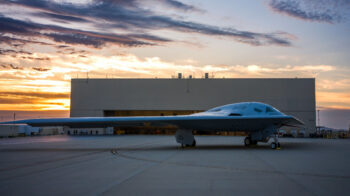
The flags of Sweden, Finland and the US fly outside the Pentagon during a May 8, 2018 visit. (DoD/Kathryn E. Holm)
WASHINGTON: The US Senate has ratified its support for Sweden and Finland to join the NATO alliance with an overwhelming 95-1 vote.
President Joe Biden is expected to sign off quickly, moving the two Nordic nations one step closer to joining NATO, a development that looked impossible at the start of the year but has moved quickly following Russia’s invasion of Ukraine.
Given the current climate in Washington, where politics usually trumps policy — see the recent fight over healthcare for veterans — the bipartisan vote is a strong sign of support for alliance expansion.
“Enlarging NATO is exactly the opposite of what Putin envisioned when he ordered his tanks to invade Ukraine,” Sen. Bob Menendez, D-N.J., chairman of the Senate Foreign Relations Committee, said ahead of the vote. “Indeed, he may have been trying to test the resolve of the alliance. And I am pleased that we have passed that test with overwhelming unity of vision and purpose.”
The two Nordic neighbors both rode out the Cold War by not militarily joining either the Western alliance or the Warsaw Pact. However, both countries are members of the European Union and have roles as observer nations at NATO through the Partnership for Peace system that allows cooperation with the alliance without actually joining.
Getting both nations into NATO was something of a white whale for the European security community — until Russia’s mid-February invasion of Ukraine. Public sentiment swung sharply in favor of joining the alliance in both nations, culminating in the May 12 announcement from Finland that it would pursue membership. Sweden followed suit on May 16, with a formal request to join coming jointly on May 18.
All 30 members of NATO have to ratify a new member before they can join. So far, the process has moved at blazing speed, with 22 nations having approved Sweden and Finland’s request before the US vote: Albania, Belgium, Bulgaria, Canada, Croatia, Denmark, Estonia, Germany, Iceland, Latvia, Lithuania, Luxembourg, Montenegro, Netherlands, North Macedonia, Norway, Poland, Romania, Slovenia, and the United Kingdom had all previously approved the agreement, with France and Italy both ratifying it earlier today.
That leaves Spain, the Czech Republic, Greece, Portugal, Slovakia, Turkey and Hungary still to go.
Those last two are likely going to be the biggest hurdles: Turkey already held up the process once, only allowing the nominations to move forward after Sweden and Finland acquiesced to security concerns, and there is speculation Ankara may slow roll the process on its end in order to hold the Nordic nations feet to the fire. Hungary’s leader, Viktor Orban, is perhaps the closest NATO leader to Russian President Vladimir Putin and has had repeated clashes with the European Union; he may look to use the NATO process to win political concessions elsewhere.
Back within the US Senate, critics of the move argued that it would ultimately require the United States to commit more military support to Europe at a time when NATO members haven’t met the 2% threshold of GDP earmarked for defense spending. The lone dissenter was Sen. Josh Hawley, R-Mo., who warned that expanding NATO would distract the US from focusing on China and the Indo-Pacific. Sen. Rand Paul, R-Ky, voted present.
“Now the choice is this: we can do more in Europe, devote more resources, more manpower, more firepower there, or we can do what we need to do in Asia to deter China,” Hawley said. “We cannot do both.”
But other senators argued that adding Sweden and Finland would have the opposite effect, reducing burden on the United States.
“A NATO that is stronger militarily, economically and geographically in Europe is a NATO that needs to lean less on American power,” Sen. Tom Cotton, R-Ark., said ahead of the vote.
Breaking Defense has published a number of pieces about the impact of Finland and Sweden joining the alliance. Here are just a few:
- Finland, in NATO and with the F-35, forms a powerful challenge to Russia
- Norwegian air chief wants ‘Nordic Air Operations Center’ if Sweden, Finland join NATO
- What Finland will bring to NATO – and how it might change the alliance
- Norway’s chief of defense: Finland, Sweden in NATO ‘opens up a lot of possibilities’
- Finland and Sweden eye Israeli defense systems: Sources
- Sweden buys more Archer truck-mounted artillery to boost defense
Sullivan says Ukraine supplemental should cover all of 2024, long-range ATACMS now in Ukraine
“We now have a significant number of ATACMS coming off their production line and entering US stocks,” Jake Sullivan said today. “And as a result, we can move forward with providing the ATACMS while also sustaining the readiness of the US armed forces.”


























